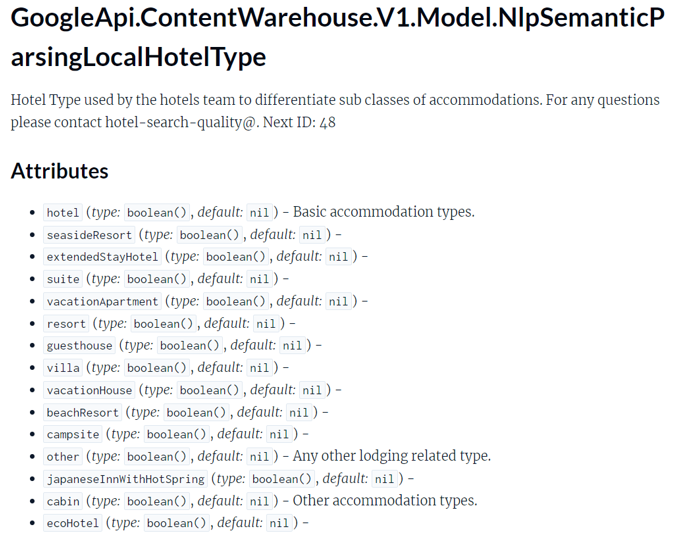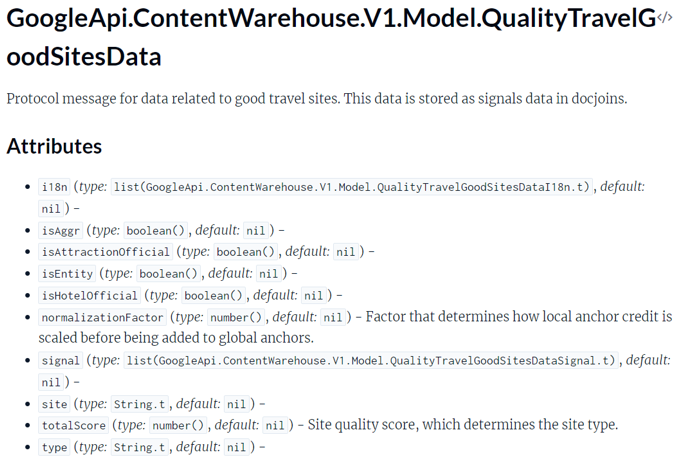In May 2024, there was a leak of over 2,500 pages of internal Google documentation that revealed crucial details about the search algorithm, and providing valuable insight into how to optimize your SEO.
Its discovery can be attributed to SEO specialist Dejan Petrovic although it was initially made public by Erfan Azimi, and renowned SEO disclosers Mike King and Rand Fishkin.

This information, from an internal API, confirms the use of several factors, and disproves several theories about the factors that influence search rankings.
Let’s see what implications it has, and how to apply it to businesses in the travel and tourism sector.
Veracity of the leak
Although Google took several days to respond, it confirmed the veracity of the leak although it warned against making inaccurate assumptions based on “out of context” information.Now we will see what conclusions we can draw, and how they affect the online travel industry.
Findings found in the Google leak
One of the most notable findings is the performance of Navboost. A Google system that takes into consideration clickstream data (the last 13 months of data). That is, metrics of user behavior on search results pages and on the web pages themselves (from various sources, but mainly from the use of the Chrome browser).Things like what links the user clicks on, what their subsequent behavior is, dwell time, etc. are relevant.
Although the search engine has repeatedly denied that CTR directly affects rankings, the leaked documents show that it does play a significant role. The leak shows parameters such as “Good clicks” or “Bad clicks” are used to measure user satisfaction with each page they visit.
Another of the discoveries extracted from this documentation is the existence of “Whitelists”. Certain domains that Google has marked with a high reliability, as well as domains considered “experts” for certain “entities” or “concepts” (special relevance of the concept of “entity” and its use in all the leaked documents). This gives them some protection from algorithms that evaluate SPAM or low quality, as well as boosting their positioning for search queries related to the entities in which they are considered experts.
Another factor that has been shown to be taken into account is the age of the domain. Older domains tend to have better ranking positions and are more stable. This is in contrast to Google’s claims that domain age is not a relevant factor.
Also a contentious issue has been finding various quality factors at the domain level. In the past Google has always denied the existence of anything like an overall domain quality or authority metric. The number of appearances of these factors in the documents indicates the great importance of these global metrics of both website quality and external links and anchor texts pointing to the domain.
It also highlights the importance of a well-structured site, with high quality content and links from trusted sources. These factors confirm the need to focus on creating valuable content and obtaining quality links. The existence of the Sandbox is confirmed, which SEOs already knew about many years ago, although the search engine denied its existence in the past. We could define it as a “trial period” until the website gains Google’s trust and starts to rank as it should.
There are also several types of penalties that Google can apply to a website:
- SpamPenalty/Anchor Mismatch: Penalizes links with unnatural/unrelated anchor texts.
- Nav Demotion: For navigation metrics that indicate a bad user experience.
- Product Review Demotion: On product reviews or ratings.
- Exact Match Domains Demotion: Reduce the value of domains that exactly match commercial search terms.
- SERP Demotion: Based on search results.
- Location Demotions: Adjusts positioning for a certain geographic area.
- Porn Demotions: For including content considered sexual or adult content.
Details Google collects on airline data
Google collects a lot of data on airlines, which is likely used in tools such as Google Flights.

This data includes:
- The main web domain of the airline.
- Airline country code.
- IATA Code and Airline Name.
- Passenger Assistance URL.
- Information on fare classes and what they offer.
- Airline contact information grouped by language.
- Carry-on baggage limitation.
- Baggage fees URL.
- Details on mileage programs.
- Information on environmentally-friendly options.
- Number of flights an airline will fly during the next 180 days.
- Sustainability Programs.
Criteria to qualify as good travel sites
Google uses several factors to determine the quality of travel sites.

These include for example:
- Language of the travel site: content should be in the appropriate language for the target audience.
- Aggregation: Consider whether the site aggregates travel information from various sources or not.
- Official entity: Sites that represent official tourist attractions or recognized entities are preferred.
- Official hotel sites: Domains that are official hotel websites.
- Anchor of internal links: If the text with which you link your internal pages is appropriate.
- Site Quality Score: A measure of the overall quality of your website.
SEO recommendations for travel websites
- You should implement a clear hierarchy in your navigation menu, and make sure that important pages are easily accessible from the home page. And are linked from other relevant pages within the domain.
- Reduce the weight/visibility of pages that are too far apart thematically. Pages that do not align with your site’s main themes can dilute your thematic authority and negatively impact your ranking for important entities.
- Periodically audit your site for irrelevant or low-quality pages. Remove or block them from being indexed by search engines.
- Work your brand and distribute your content, Google is increasingly giving more weight to brand recognition, to the detriment of smaller or amateur websites. It is not only about getting volume of links as it was traditionally done. Rather, the quality of the links should be prioritized, looking for links from relevant sources related to the subject matter. A link on a reliable site, in which users will click and land on your domain will have much more value than a link with little visibility and use by users.
- Keep your content up to date, with a clear editorial calendar, and a regular content review/update policy.
For the travel industry, these findings have direct implications.
Companies must ensure that their websites are not only visually appealing, but also functional and easy to navigate. Working to optimize content is crucial, including the use of relevant keywords, useful articles and guides that address all the most common traveler questions.
In addition, it is important to maintain an intuitive web architecture that makes it easy for users to experience the web, as well as for search engines to find and index relevant content.





